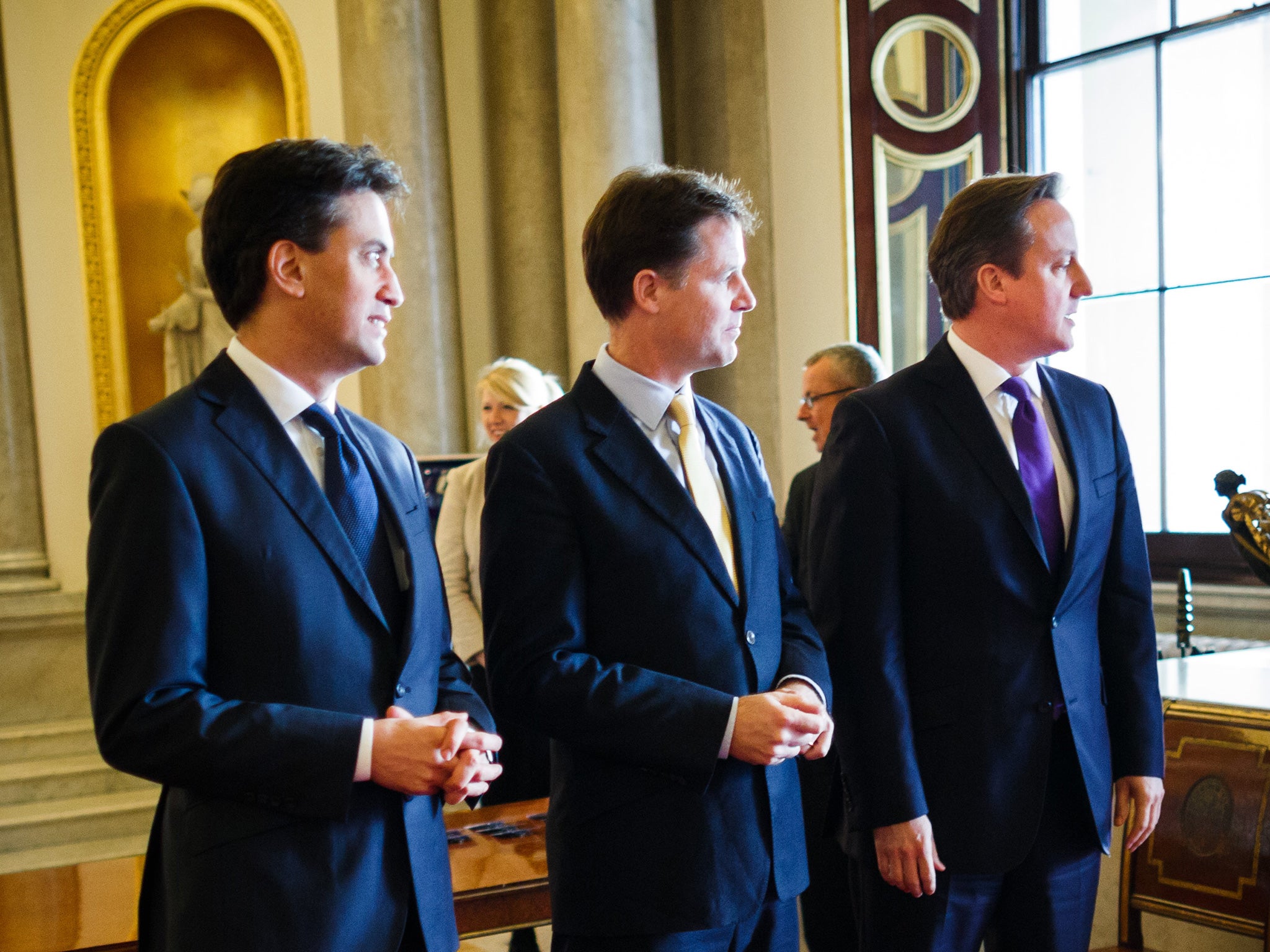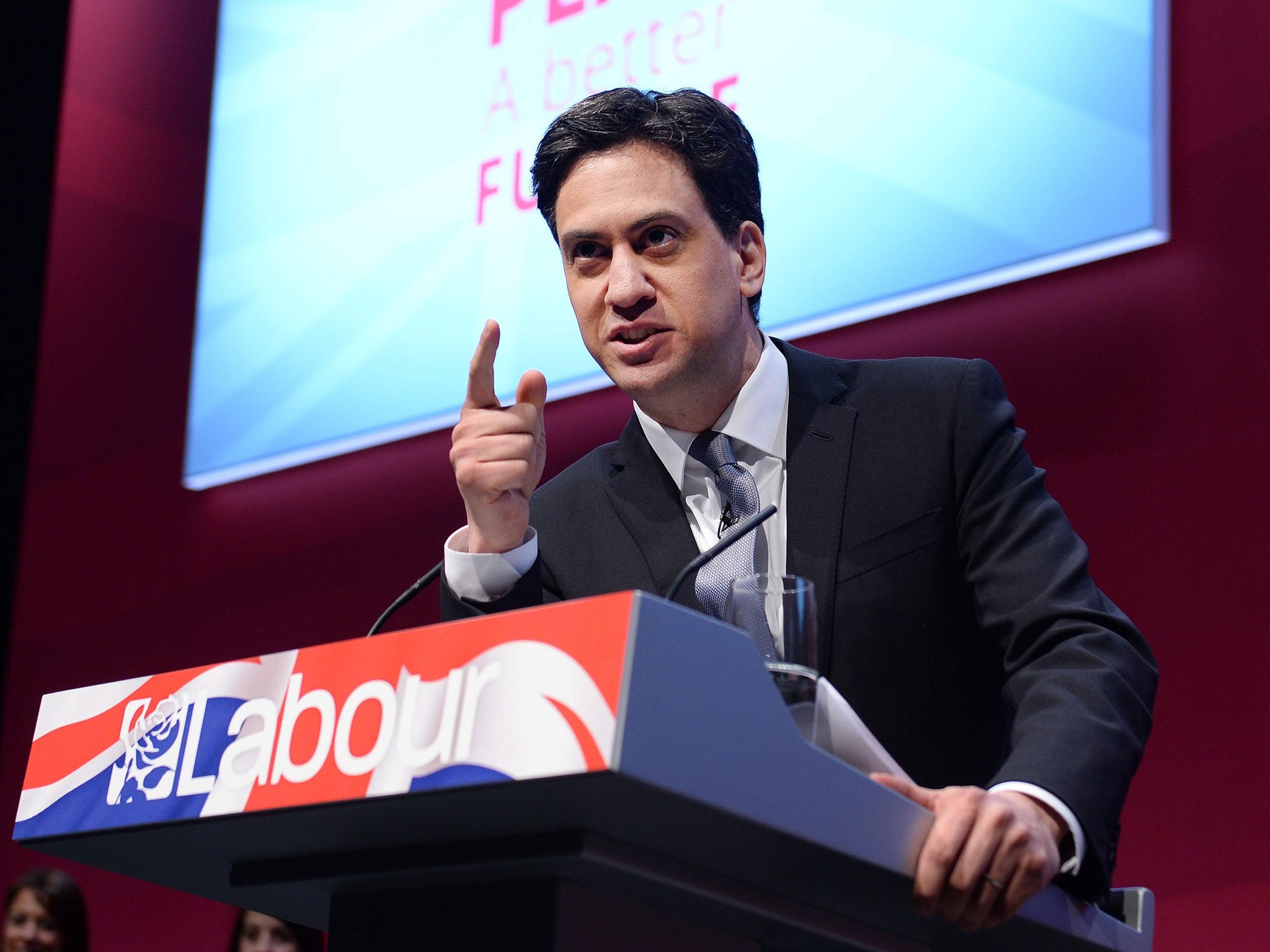General Election 2015: People's incomes will reduce on average over next five years no matter which party is in power, says watchdog
The IFS criticised all three main parties for 'vaguely defined, opaque and apparently painless' tax rises and 'largely unspecified' benefit cuts

Your support helps us to tell the story
From reproductive rights to climate change to Big Tech, The Independent is on the ground when the story is developing. Whether it's investigating the financials of Elon Musk's pro-Trump PAC or producing our latest documentary, 'The A Word', which shines a light on the American women fighting for reproductive rights, we know how important it is to parse out the facts from the messaging.
At such a critical moment in US history, we need reporters on the ground. Your donation allows us to keep sending journalists to speak to both sides of the story.
The Independent is trusted by Americans across the entire political spectrum. And unlike many other quality news outlets, we choose not to lock Americans out of our reporting and analysis with paywalls. We believe quality journalism should be available to everyone, paid for by those who can afford it.
Your support makes all the difference.Tax and benefit changes over the next five years will reduce people’s incomes on average no matter which party is in power, an independent watchdog has said.
The Institute for Fiscal Studies (IFS) warned that the Conservatives’ plan for £10bn of undisclosed welfare cuts would require an average 10 per cent reduction in “non-protected” benefits and would hit low income families with children. Options could include scrapping child benefit for people not on universal credit (to save £5bn); sharp reductions in child tax credits (£5bn); making housing benefit claimants pay 10 per cent of their rent (£2.5bn) and taxing disability benefits (£1.5bn).
After analysing the tax and benefit changes proposed by the Tories, Labour and the Liberal Democrats, the IFS criticised all of them for "vaguely defined, opaque and apparently painless" tax rises and "largely unspecified” benefit cuts. It said they made their sums add up by curbing tax avoidance, with billions of savings “plucked out of thin air.”
The IFS said the Tory and Lib Dem plan to raise the personal tax allowance to £12,500 by 2020 would benefit people in the middle and upper middle of the income scale. It suggested the £4bn a year cost would be better spent on taking low paid workers out of national insurance, which bites on annual incomes of £8,060.
According to the IFS, the number of people dragged into the higher 40p tax rate could rise from 4.9m today to 6.5m by 2020 under Labour and to 5.2m under Tories -- despite their plan to raise the threshold to £50,000.
Its report was dismissive of Labour’s claim to be making “tough choices,” saying a 1 per cent cap on child benefit would save nothing and removing winter fuel allowances from better off pensioners only £100m. Labour would spend an extra £380m by scrapping the controversial “bedroom tax.”

The IFS said there is no justification for Labour's proposed 10p starting rate of tax and “much uncertainty" about how much its planned 50p rate on incomes over £150,000 would raise, which could be as low as £100m.
It calculated that Labour’s plan for a mansion tax on homes worth more than £2m could amount to an average of £16,600 a year for properties valued at more than £3m. Labour has said a home in the £2m-£3m bracket would face a £3,000 annual charge but has not given details for more expensive properties.
However, the IFS also criticised the Tories’ plan to cut inheritance tax on the family’s main home at a cost of £1bn, saying it is “hard to see a good economic or social rationale for such a policy.”
The report expressed concern that all parties want to curb tax relief on pension contributions by high earners, warning that could undermine saving and destroy the system under which tax is paid when pensions are drawn.
Robert Joyce, a senior research economist at the IFS, said the Tory welfare cuts would be “neither easy nor painless to deliver” but Labour’s welfare changes would save almost nothing. “The manifestos have not helped us towards a sensible debate on the future generosity or structure of the benefits system,” he said.
IFS verdict on proposed tax and benefit changes
Conservatives
£10bn net takeaway from households-- £1bn net tax cuts and £11bn net benefit cut
Raising threshold for 40p rate raised to £50,000 by 2020 would benefit the richest 9 per cent of adults
Unspecified £10bn of welfare cuts should be spelt out more clearly.
Freeze on working age benefits for two years will save £1bn, affecting more than 11m families
Reducing annual cap on benefits for one family from £26,000 to £23,000 year would save only £135m and affect 94,000 families
Labour
£12bn net takeaway
Rhetoric on the “tough choices” needed on spending cuts not matched by policy. Benefit changes would have “a small impact on the public finances”
Party has been more open about tax rises. Mansion tax bills for the 55,000 homes worth more than £3m could average £16,600 to raise the £1.2bn for NHS Labour seeks
Plan to reduce annual pension tax-free contribution limit from £40,000 to £30,000 could hit some people earning £50,000 a year
Liberal Democrats
£14bn net takeaway. Plan to raise taxes by £11.7bn but £9.7bn of it comes from largely unspecified crackdown on tax avoidance
Proposals to cut benefit spending by £2.1bn are “vague”, with £1.9bn coming from reducing fraud and error and getting people into work
Join our commenting forum
Join thought-provoking conversations, follow other Independent readers and see their replies
Comments